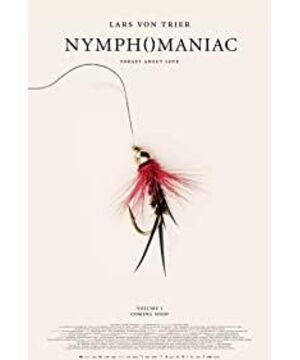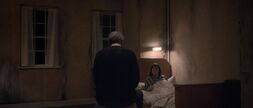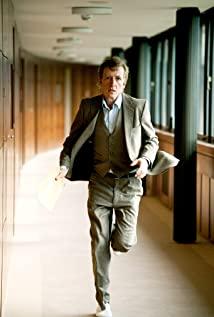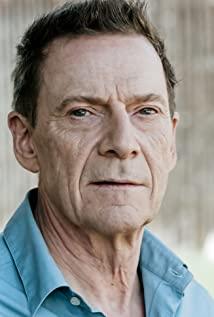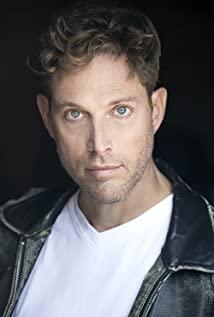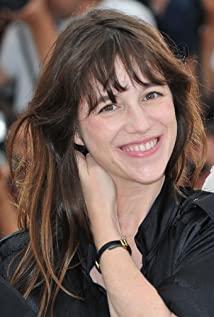For readers who haven't watched this film, let me first pull up the storyline of this film, because later I will analyze the epic nature of this film from the structure of the play. This film tells of a bachelor Seligman who accidentally saw a wounded woman on a winter night, and then took her home. The two began to talk about the life of the hostess in a closed room with a bait. In the first more than 110 minutes, the heroine used 5 chapters to talk about her childhood, adolescence, and adulthood. It revolved around break-ups, sex games, work, first love, death of her father, and fight with her original partner. In the third year, three of my own boyfriends started. During the period, they also talked with Seligman about fishing and sex, liberalism, happiness, original sin, rebellion, shame, art and life. The content of the conversation can be described as astronomical and down. Geography is all-encompassing, prosperous and colorful.
Then we look at the structure of the story. From the perspective of my hindsight, "Female Addict" uses several artistic categories such as mythology, fairy tales, music, borrowing, and mathematics to modify the story.
myth. In the film, the conversation between Seligman and the heroine talked about original sin and shame from time to time. We know that the term "original sin" comes from Christianity, and it refers to a "crime" that is inherent in human beings and cannot be washed away. In the film, "original sin" refers to "sex addiction", because it is born and cannot be satisfied, it is consciously a punishment from God. The large number of sexual organs and sex scenes shown in the film all confirm this. In these frequent sex scenes, the audience feels not a climax, but a depression. The shame in the movie is reflected in the chapter where his father died. The heroine accompanied his father to death in the hospital. At the moment of his father's death, her vagina was "wet". The daughter's physiological reaction to the father is obviously against ethics, and the sense of shame comes from here. Some time ago, I saw an interpretation of the ancient myth "Adam and Eve" in the "Mivosh Dictionary". It probably meant that Adam and Eve were expelled from the Yipu Garden because they ate in and were there. For a moment, they were ashamed of their nakedness. The mythological model used in the film is also the story of Adam and Eve, the origin of mankind. The hostess reminded me that she was the Eve who tempted Adam to eat the forbidden fruit, and when the film was going on, she and Seligman were also connected to the plot that Seligman was going to sexually assault her. The conversation between the two was simply It means the oldest conversation of mankind. However, in association with the close relationship between mythology and religion, Eve was given the role of a "rebel", because she faced up to her instinct of sex addiction, and did not take into account the religious regulations on morality.
fairy tale. Why do you think of fairy tales? Firstly, because the director is a Danish, and he likes the technique of fables so much, and secondly, the beginning of the story is a fairy tale. We are familiar with the fairy tales of Prince Andersen and the princess like this: One day, the prince met the princess in trouble and rescued her, and the two lived a happy life. So in "Female Addicts", the director arranged this way. Our heroine was injured lying on the cold ground. She was just seen by the bachelor Seligman who came out to buy bread. He saved her and brought her home. , And understand her story, trying to live a "happy life" with her. However, contrary to fairy tales, this princess claims to be a "bad guy", which is what we often call a slut. Why the director used fairy tales to modify this story? I think it is because fairy tales are close to our original desire for life to some extent. Back to the beginning, you can see the essence!
music. On this point, I don’t have much music knowledge, so I’ll just talk about it briefly. This film uses Bach’s polyphonic structure, which is a three-voice part. This is used in the fifth chapter of the film to show the heroine’s three different boyfriends. There is also a kind of devilish temperament in B and F. In the Middle Ages, music was considered not an object for people to appreciate or listen to, not for enjoyment or entertainment. It was endowed with the moral and rational function of educating people and making people abandon evil to good. In other words, music has the power to confuse people, so in the film their club uses the voice of the devil. So in the play, what kind of entrance does music provide? I guess Seligman is the basic tone, he is "low-key, predictable, and undoubtedly"; while the heroine is the second voice, she deserves Seligman to listen to her story patiently; as for the third voice, It's the story of the heroine. These three voices have their own content and achieve a kind of harmony at the same time. Later, Chapter 5 applied this theory again, which should have given a sense of depth similar to layers, just as we often say that there are stories in stories.
borrow. To borrow this, it's easy to say that the director loves this technique no matter whether it is in drama or video. Soon after the beginning of the article, the topic of sex addiction was introduced with fishing bait, and then the knowledge of fishing and the story told by the heroine were intertwined. This is what the heroine's father talked about the growth habits of ash trees, and Poe's novel "The Fall of Usher's House". One advantage of borrowing is that it makes the whole story larger in space, and forcibly brings multiple associations to the audience.
math. I’m a liberal arts student, I don’t really understand the theory of mathematics, but the film does use a lot of mathematical formulas to express the content. The Fibona sequence of the golden ratio has been used many times in this film. I can only see that in the arrangement of the five stories, the director used a way of interlocking and continuous advancement. I wonder if there is some beauty in mathematical form here?
At this point, some viewers may ask, does the director pretend to use so much knowledge? But without these forms, let's just imagine what this film will look like, and does it still have the epic atmosphere now? I don’t think so. The director just thinks that it must be used, rather than set down these skills and then put the story into it.
Finally, in a long-winded sentence, in the concept of Baidu, "epic" is a solemn literary genre. The content is folklore or a long narrative poem praising heroes. The themes involved can include historical events, nationalities, religions or legends. That is to say, "Epic" highlights the characteristics of "solemn" and "eternal". Maybe the director wants to tell us that desire from the beginning is always a way to explore various phenomena of human nature.
View more about Nymphomaniac: Vol. I reviews


